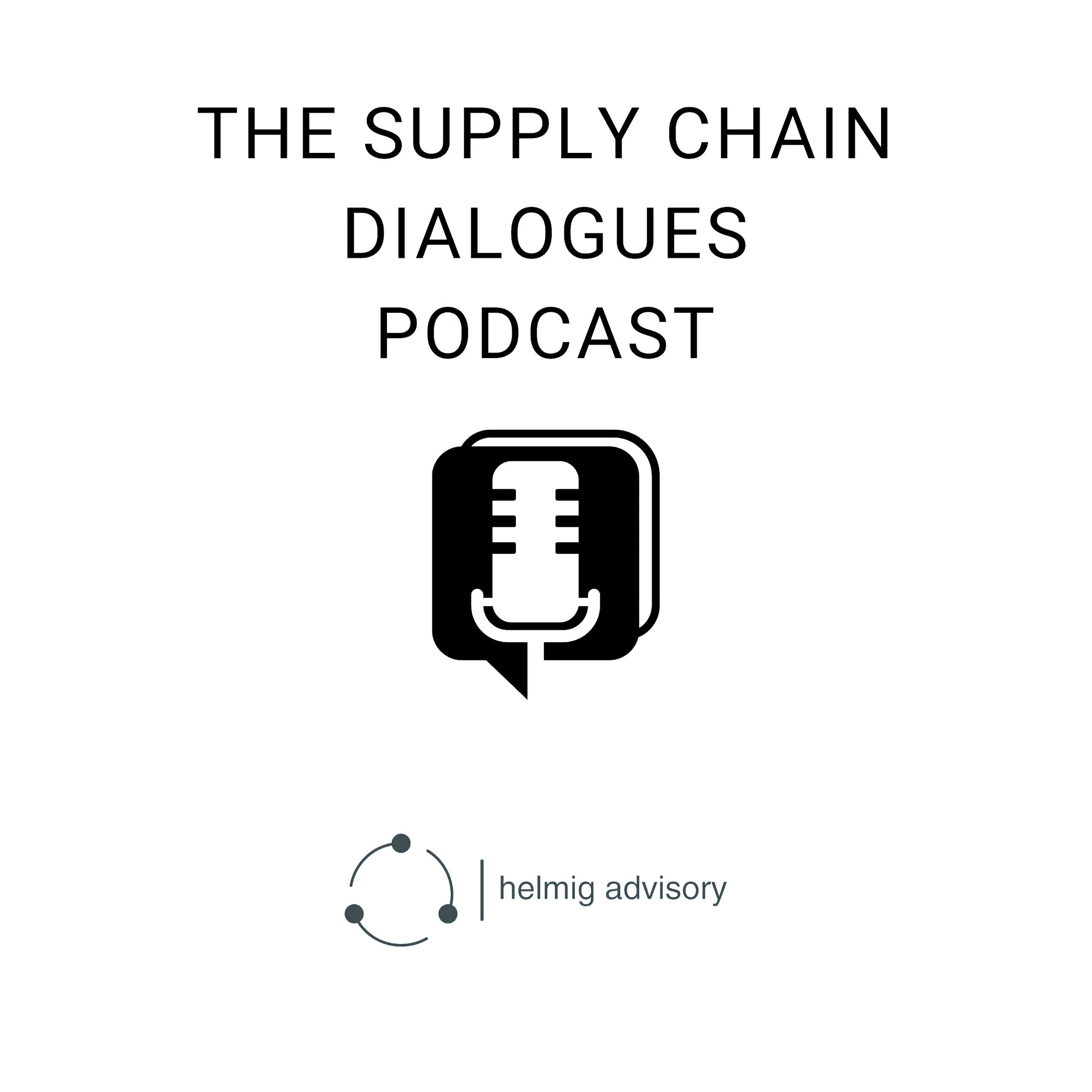The Supply Chain Dialogues - Podcast
Apple / Spotify / Youtube / Transcripts

S03E13: Urban Mining's Secret Weapon: The Man Who Tamed Diesel Cats - Interview Don Weatherbee, CEO of Regenx Tech
In this episode of Supply Chain Dialogues, host Daniel Helmig explores an innovative urban mining solution to a pressing environmental challenge with Don Weatherbee, CEO of Regenx Tech. The company has developed a groundbreaking process for recycling precious metals from diesel catalytic converters – a material that traditional smelters typically avoid. Using a unique hydrometallurgical approach rather than conventional smelting, Regenx Tech achieves high metal recovery rates while producing virtually zero emissions compared to the 1,500kg of CO2 generated per ton through traditional methods. Located strategically in Tennessee, the company is positioned to revolutionize the circular economy of precious metals, particularly platinum and palladium, addressing critical supply chain shortages while significantly reducing the environmental impact of recycling these valuable materials. Perfect for anyone interested in sustainable innovation, automotive manufacturing, or the future of precious metal recycling.

S03E12 - Planet - The Great Climate Spending Paradox: When Actions don't match words
While politicians talk climate action, they're pouring billions into fossil fuel subsidies - we follow the money trail in our latest episode. Join us for a data-driven revelation of the great climate spending contradiction and what it means for your business future:

S03E11 - Profit/Planet - Cracking the Carbon Code: One System to Rule Them All
In this episode of the Supply Chain Dialogues, host Daniel Helmig and AI co-host AImee work through the details of global, regional, and local greenhouse gas regulations. They stress the importance of understanding the Greenhouse Gas Protocol's Scope 1, 2, and 3 requirements as a foundation for compliance with more specific rules such as the EU's Corporate Sustainability Reporting Directive, Germany's Supply Chain Due Diligence Act, and France's Climate and Resilience Law. The episode offers practical advice on data collection, risk management, and compliance strategies, emphasising the benefits of finding the right consolidated approach to meet diverse regulatory demands. Daniel and AImee discuss companies' challenges due to overlapping regulations and provide actionable tips for navigating this complex legal environment.

S03E10 - Planet - Scope 3 - Emission Impossible: Getting your suppliers to work on GHG Emission Reduction
This podcast episode focuses on how companies can encourage their suppliers to reduce greenhouse gas emissions. The hosts emphasize the importance of setting science-based targets, incorporating sustainability into supplier selection, providing training and resources, ensuring transparency and accountability, leveraging technology and innovation, and collaborating on solutions. The episode stresses that sustainability is not just a moral imperative but also a strategic advantage for businesses, as it can lead to cost savings, enhanced reputation, and stronger investor appeal.

S03E09 - Planet - Bias Busters: Unpacking Psychology to Power GHG Reductions
Have you ever wondered why so many of us acknowledge the reality and impact of climate change on future generations yet struggle to take sufficient action?
In this episode of "The Supply Chain Dialogues," Daniel Helmig and AI co-host AImee explore how human psychology affects our response to climate change. They discuss cognitive biases like the immediacy bias and the Dunning-Kruger effect and how these can impede effective climate action. Drawing on insights from the late Daniel Kahneman and other experts, the episode uses behavioural science to foster sustainable habits and policies. They highlight real-world examples of how businesses and governments can use social norms and incentives to promote environmentally friendly practices. Please tune in to learn how psychology can help us better tackle climate challenges.

S03E08 - Planet - Net-Zero Made Simple: A Practical Guide for Small to Medium Enterprises
In this extended episode of "Supply Chain Dialogues," Daniel Helmig and AI co-host AImee go all out and offer a detailed guide for small to medium-sized companies on achieving net-zero greenhouse gas (GHG) emissions, covering Scopes 1, 2, and 3. They provide a thorough overview of each scope, explaining their roles in a company’s carbon footprint and sharing strategies, tactics and tips for reducing emissions. The podcast gives practical steps for transitioning to renewable energy, enhancing energy efficiency, and leveraging technological innovations. Additionally, Daniel and AImee emphasise the importance of collaboration and engaging suppliers and stakeholders in sustainability initiatives. They are not afraid to point out who the boss is in this kind of conversation. Listeners are encouraged to tackle emissions methodically and adopt a systemic approach, positioning their companies toward net-zero GHG emissions while potentially cutting costs.

